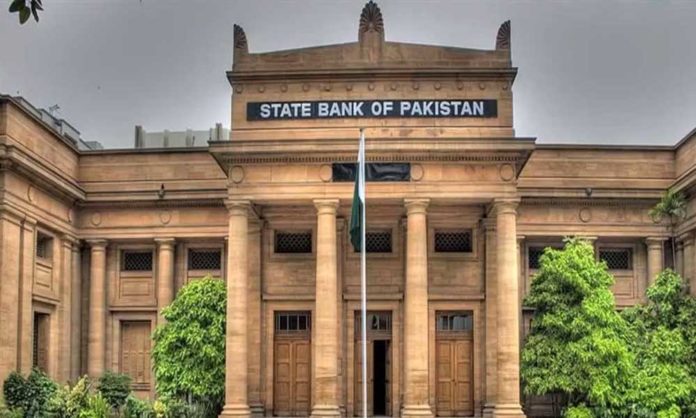The interest rate or policy rate is the main instrument a country’s central bank has to adjust to keep inflation in check but the State Bank of Pakistan (SBP) has chosen to keep it unchanged at 15% despite high inflation. Why does it choose not to adjust the interest rate and what will be its consequence?
Last month, the SBP jacked up interest rate by 125 basis points taking it to a 14-year high of 15%. So experts were expecting another hike this month due to high inflation but the central bank has decided to keep it unchanged.
In our previous monetary policy story, it was discussed how interest rates affect inflation, trade deficit and exchange rates, why it is used, and why it sometimes does not give the desired results in the context of Pakistan?
In the State Bank’s official media communication, it said that interest has been increased by a cumulative of 800 basis points (from 7% interest rates to 15%) ‘to cool the overheating economy and contain the current account deficit since last September’.
Economy overheats when imports increase more than imports, there’s economic growth but it is unsustainable because of falling foreign exchange reserves. This also increases inflation. It forces government’s economic managers to take action such as adjusting interest rates and restricting imports.
“With recent inflation developments in line with expectations; domestic demand beginning to moderate and the external position showing some improvement, the MPC (Monetary Policy Committee of the SBP) felt that it was prudent to take a pause at this stage,” read the MPC note.
“Looking ahead, the MPC intends to remain data-dependent, paying close attention to month-on-month inflation, inflation expectations, developments on the fiscal and external fronts, as well as global commodity prices and interest rate decisions by major central banks,” it added.
The headline inflation rose further to 24.9 percent in July, with core inflation also ticking up. This was expected given the necessary reversal of the energy subsidy package—effects of which will continue to manifest in inflation out-turns throughout the rest of the fiscal year—as well as momentum in the prices of essential food items and exchange rate weakness last month.
Second, the trade balance fell sharply in July and the rupee reversed course during August, appreciating by around 10 percent on improved fundamentals and sentiment.
“Third, the board meeting on the on-going review under the IMF program will take place on August 29 and is expected to release a further tranche of $1.2 billion, as well as catalyzing financing from multilateral and bilateral lenders. In addition, Pakistan has also successfully secured an additional $4 billion from friendly countries over and above its external financing needs in FY23. As a result, foreign exchange reserves will be further augmented through the course of the year, helping to reduce external vulnerability,” it added.
The expectations that the foreign exchange reserves to increase from $7.9 billion on August 12 to rise to around $16 billion during FY23 has given some hope to the policy makers to not further choke growth, however it means inflation may stay at present level.








































